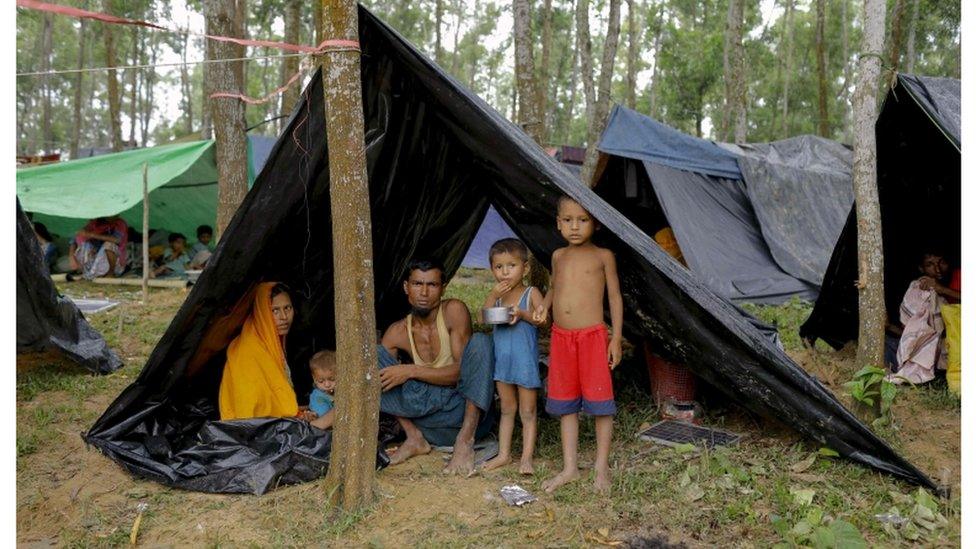BBC reporter in Rakhine: 'A Muslim village was burning'
- Published
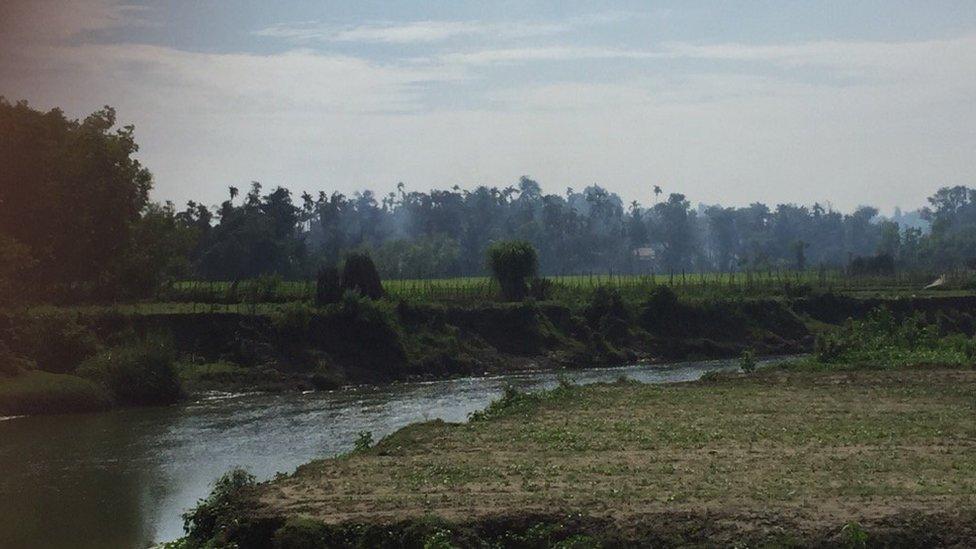
Jonathan Head tweeted this image of the fires in Gawdu Zara village in Rakhine
About 164,000 Rohingya Muslims have poured into Bangladesh from Myanmar's Rakhine state since violence erupted two weeks ago. They say the military and Rakhine Buddhists are destroying their villages to drive them out after attacks by Rohingya militants on police posts.
The government rejects this, saying the militants and Muslim residents are burning their own villages. But the BBC's South East Asia correspondent Jonathan Head says he saw a Muslim village that had just been set on fire, apparently by a group of Rakhine Buddhists. Here he describes what he witnessed:
I am part of a group of journalists invited by the Myanmar government to see the situation on the ground in Maungdaw. The conditions for us joining this trip are that we stay in the group and do not go off independently, and we are taken to places the government chooses for us.
Requests to go to other areas of interest, even nearby, were rejected as being unsafe.
We were returning from a visit to the town of Al Le Than Kyaw, south of Maungdaw, which is still smoking, suggesting houses have been recently set alight.
The police said it was the Muslim inhabitants who burned their own homes, although most fled after militants from the Arakan Rohingya Salvation Army attacked the police post in the town on 25 August. While there we saw at least three columns of smoke in the distance to the north, and heard sporadic automatic weapons fire.
On our way back we saw a large column of smoke rising from a cluster of trees in the rice fields - usually a sign of a village.
We got out and raced across the fields to reach it. We could see the first buildings in the village ablaze, but only just. Houses in these villages burn to ash in 20-30 minutes. It was obvious the fires had just been lit.
Jonathan Head, speaking on Wednesday on a government-organised trip to Rakhine
As we walked in, a group of young, muscular men carrying machetes, swords and sling-shots were walking out. We tried to ask them questions but they refused to be filmed.
However, my Myanmar colleagues did speak to them away from the cameras and they said they were Rakhine Buddhists. One of them admitted he had lit the fires, and said he had help from the police.
As we walked further in, we saw the Madrasa (Islamic religious school) with its roof only just on fire. Flames licked up the sides of another house opposite; within three minutes it was an inferno.
There was was no-one else in the village. These men we saw were the perpetrators. Household goods were strewn across the path; children's toys, women's clothing. We saw one empty jug reeking of petrol and another with a little fuel left in it in the middle of the path.
By the time we walked out, all the burned houses were smouldering, blackened ruins.
- Published4 September 2017
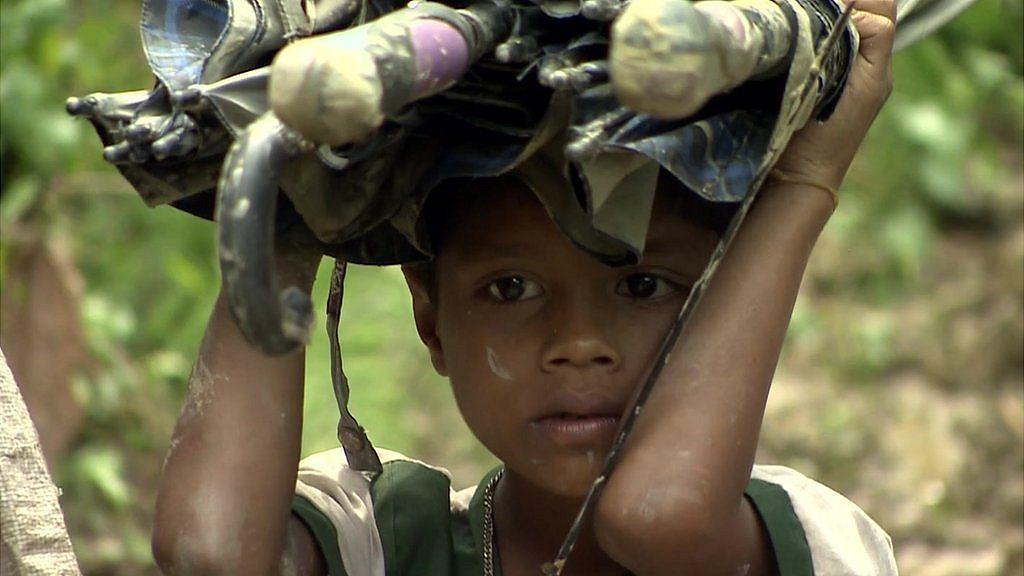
- Published2 September 2017
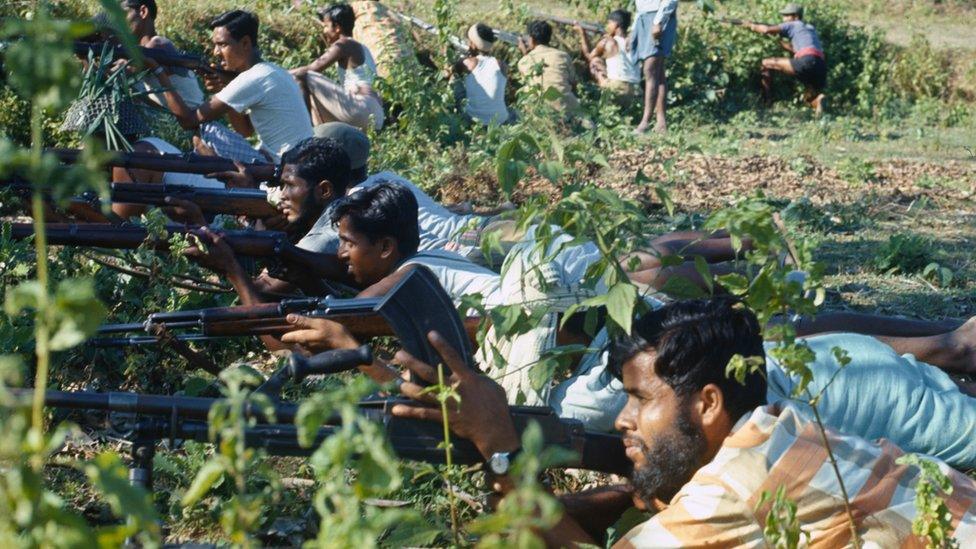
- Published19 September 2017
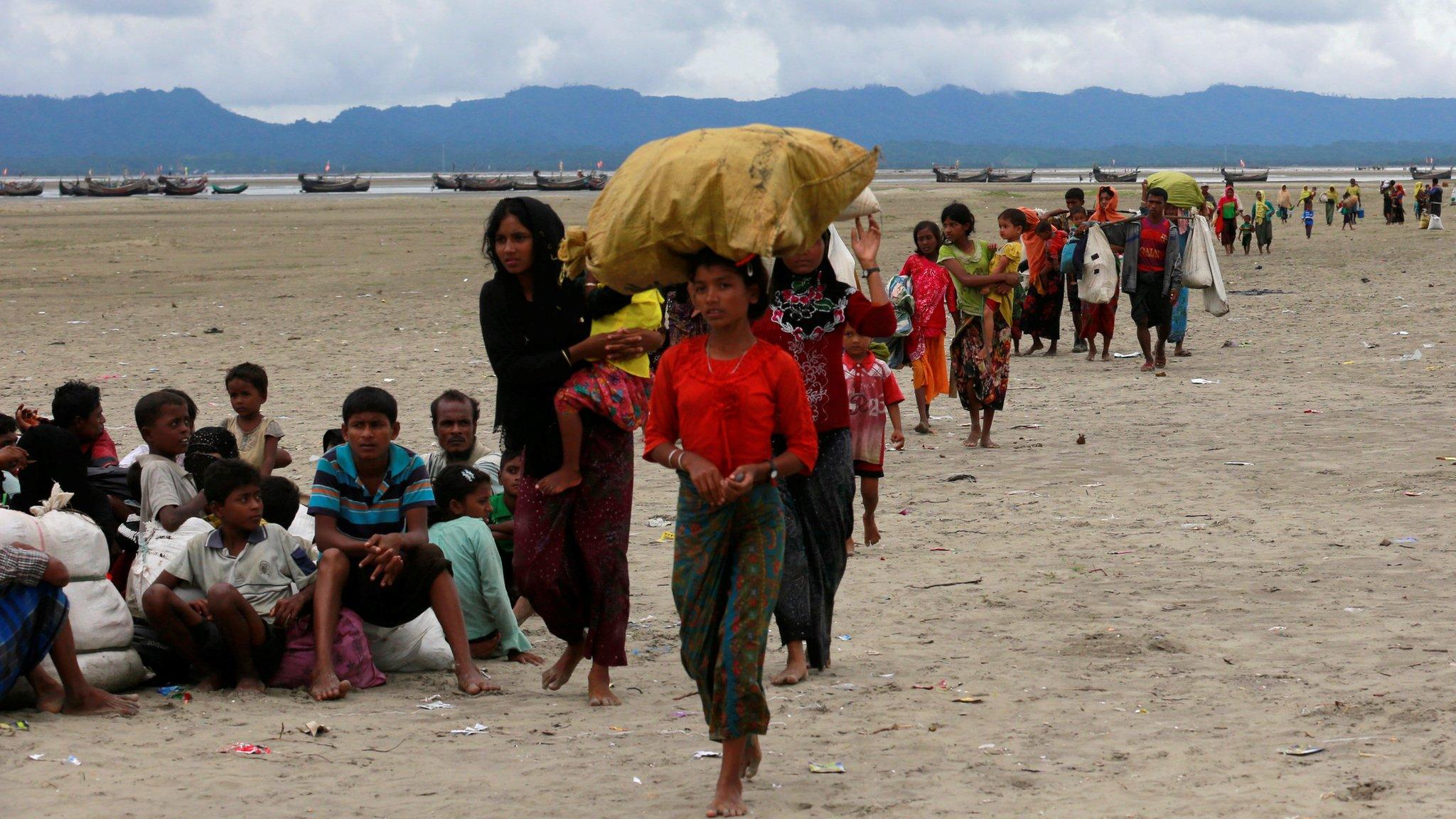
- Published6 September 2017
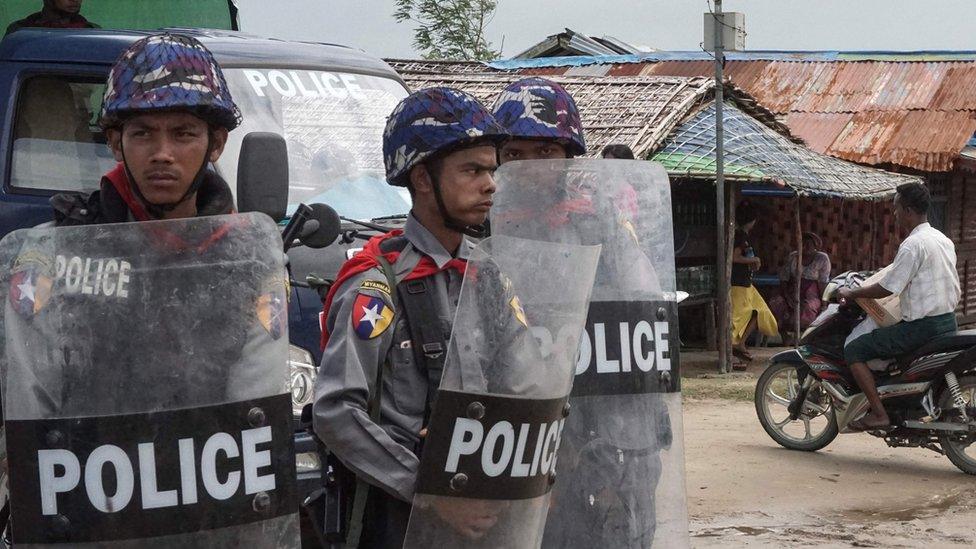
- Published5 September 2017
